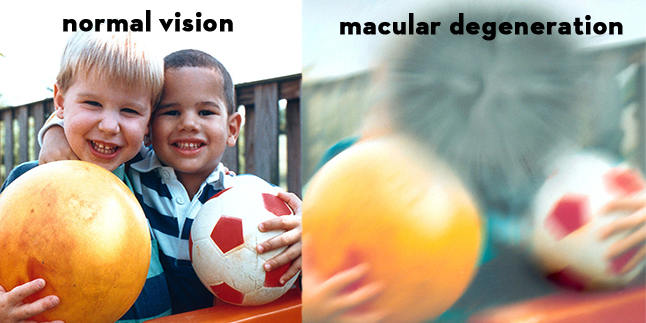An interview with Dr Mahmood Piraee, PhD
By Jason Sebeslav
Dr. Mahmood Piraee is a pharmacist with a PhD in molecular and cellular biology from Dalhousie University, Halifax, Canada. He has over 20 years of experience in natural products drug discovery and development. We had the opportunity to interview Dr. Piraee recently about age-related vision loss and the nutrients that may help reduce the risks.
Jason Sebeslav: Dr. Piraee, most people assume the vision problem known as Age-Related Macular Degeneration (AMD) only affects seniors. Is this true?
Dr. Mahmood Piraee: Macular degeneration and cataracts are now affecting people at a younger age – as early as 40 years old. Losing your vision is one of the most devastating health conditions you can develop as you get older.
JS: So what’s actually happening in the eye in the case of AMD?
MP: AMD is the leading cause of blindness in people over 50. The macula is a small area in the retina that is responsible for the sharp vision you need to read a newspaper, watch TV and see your grandchild’s first smile. The macula gets damaged in AMD, which will lead to slow loss of your central vision, to the point where you can’t drive, read or even recognize faces.
JS: Is there nutritional component in the risk factors for AMD, or is it more genetic and environmental?
MP: Studies show that right nutritional support can significantly reduce your risk of developing AMD, and help support and maintain your healthy vision in AMD. A healthy macula needs high levels of specific vitamins and nutrients. Even if you eat a generally healthy diet, as you age you probably don’t get enough of the right nutrients for optimum eye health.
JS: You advocate a vision supplement called Saffron 2020. What’s the story behind this product?
MP: in 2009 I became frustrated when medical interventions couldn’t help slow a family member’s AMD. I embarked on a personal and professional mission to find a solution for AMD, and soon found clinical studies into the impressive, untapped eye health properties of saffron and resveratrol. More than a mere antioxidant, Saffron 2020 combines the known benefits of macular carotenoids, vitamins, and resveratrol with saffron, a unique ingredient that has been proven to improve the way genes work together to repair and maintain cells in the retina of the eye. Saffron 2020 is developed to help maintain eye health in AMD and support general vision.
JS: Saffron 2020 is also certified by Health Canada for helping to reduce risk of cataracts. Are AMD and cataracts related?
MP: Yes – the same nutrients that can protect against AMD can also protect you from developing cataracts, and can help maintain your vision if you have cataracts.
JS: So those people currently suffering from cataracts or AMD still benefit from supplementation with Saffron 2020?
MP: Yes, in fact Saffron 2020 was first developed for people suffering from AMD or cataracts. It helps restore structure and function of retinal cells in AMD. The antioxidant ingredients in Saffron 2020 also protects lens of the eye in cataracts. We recommend supplementation for a period of minimum three months before noticing the first beneficial effects.
JS: Are there situations or scenarios where a person should not supplement with Saffron 2020?
MP: Those who are pregnant, breast feeding or planning to become pregnant should not use the supplement.
JS: Do you have a particular success story that has stuck with you?
MP: Yes, we recently heard from Dan, from the USA, who wrote: “A year ago I was diagnosed with macular degeneration…I started taking Saffron 2020 and in a little less than three months, my vision started getting really good so my visits to the doctor started getting further apart….”.
JS: What other dietary or lifestyle tips should people be aware of for vision protection?
MP: There are many, but a few of the most important would be, first, to quit smoking. Smoking is a major and proven risk factor for eye problems, and can double the risk of developing AMD. Next, make sure your eyes are tested regularly. Permanent vision loss can occur without any symptoms, so early diagnosis for successful management of AMD is very important. Research suggests that nutrition plays an important role in development of AMD. Adopt a balanced and healthy diet that is rich in fresh fruits and green leafy vegetables such as spinach, kale, yellow peppers and broccoli. Other foods that may have eye health benefits include oranges, kiwis, dried apricots, tomatoes, corn and nuts. Maintain a healthy weight and exercise regularly, since obesity increases risk of developing diabetes, which could lead to diabetic retinopathy and consequently to vision loss. Finally, protect your eyes from sunlight by wearing high-quality sunglasses.

